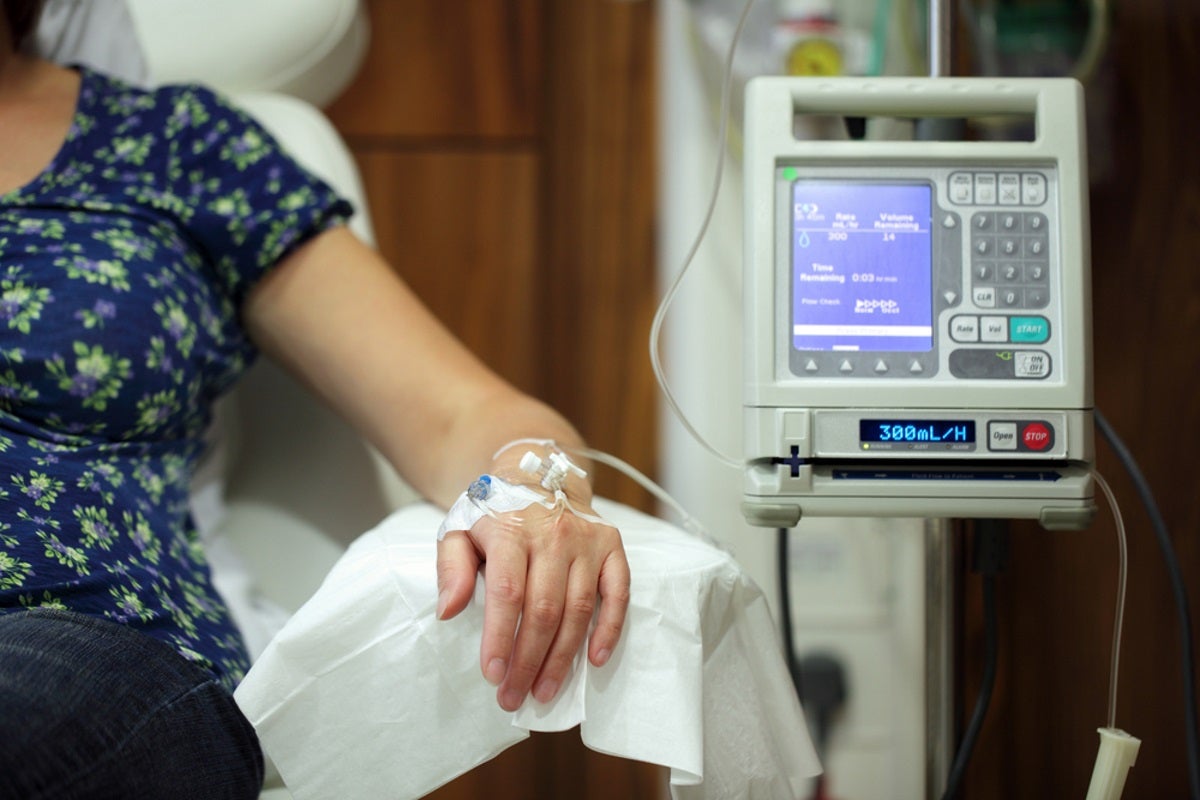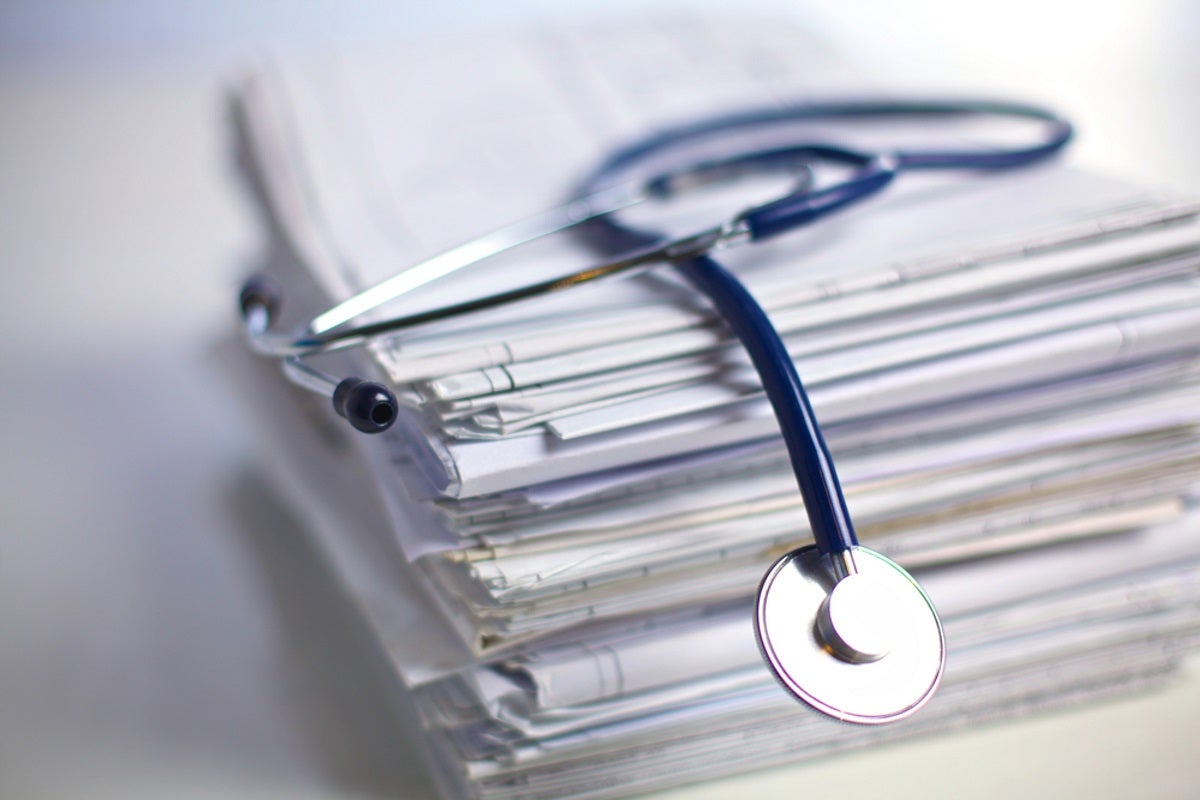10 Tips to Help you Manage Chemo Therapy Side Effects
Chemotherapy for gynecologic cancer can be a beneficial treatment; however, it can also come with some uncomfortable side effects. The purpose of the chemotherapy drugs is to destroy or slow your cancer cells, but it may also affect healthy cells.
There are a variety of chemotherapy treatments, so it can depend on which you are given and how your body reacts as to what side effects you will experience. Your chemotherapy team should work with you to address the side effects, but knowing what to expect can also help you be more prepared.
Your medical team will be especially important while you are undergoing chemotherapy. They will be able to help you prevent and treat symptoms which may occur as a result of chemotherapy. They can also help you know which medications, supplements, and activities you should avoid during therapy, and which ones could be helpful. While undergoing chemotherapy, you should discuss any and all symptoms with your medical team and never assume or discount them. Keeping a detailed symptom diary is especially critical during this time, too.
Though there are a number of symptoms you may experience, here are some tips to help you manage 10 of the common side effects of chemotherapy treatment.
1. Nausea and vomiting.
Nausea and vomiting can be common side effects of many different chemotherapy drugs. It can be helpful to take nausea medications before you feel sick to minimize the amount of nausea and vomiting, so ask your doctor if that plan is right for you. It can also be helpful to eat a small, light meal before undergoing chemotherapy and during chemotherapy treatments, and avoid heavy, high fat, or greasy meals. Because vomiting can contribute to dehydration, it’s also important that you try to drink plenty of liquids throughout the day while you are undergoing chemotherapy.
If you start vomiting, stop eating. Once your stomach settles a bit, try to slowly start back on clear liquids, progress to Jell-O, toast, etc., and finally add small amounts of solid foods. Avoiding caffeine and smoking could help prevent some nausea, as can sucking on hard candy, eating popsicles, and avoiding strong odors.
2. Appetite issues.
During chemotherapy, you may find you have little or no appetite, or you may find you are full after eating only small amounts. To help you get the nutrition you need, try to eat several smaller meals or snacks throughout the day. You can also get nutrients and calories in shakes, smoothies, and liquid supplements. You should also make meals count. Instead of filling up on low calorie foods like lettuce, choose foods rich in nutrients and calories so you don’t have to eat as much. Peanut butter, cheese, and fruits can be good choices. If food doesn’t taste good, try new seasonings and flavors.
You can also stimulate your appetite by walking a bit or doing some other light exercise recommended by your doctor. Keeping your mouth fresh by brushing, sucking on hard candy or mints, or chewing gum could help with appetite as well.
3. Hair loss.
Hair loss from chemotherapy can be a traumatic experience. Preparing for it and being aware of it can help you have some control over this side effect. You may lose all of your hair at once, it may fall out over a period of time, or you may only lose some of your hair. It is possible that wearing an ice camp might help prevent hair loss, it may also prevent the chemo from working as effectively in that area. If you are interested, talk to your doctor about the possible benefits and risks of trying products such as an ice camp prior to beginning treatment.
Some people choose to preemptively cut their hair or shave it off completely. Only you can determine if this would be less distressing for you or not. You can also choose a wig prior to losing hair, allowing the stylist to better match it to your natural hair and style. Your insurance company may pay for a wig, so ask before purchasing. Instead of a wig, you could choose to wear hats and scarves. You can choose one or a variety of colors and styles. Local support groups can help you find products, know how to use them, and share information about covering the expenses involved.
Remember, your hair should grow back, but it can take time and it may not be the same. The new texture and color could be different than what you were used to, so don’t be surprised if your straight blond hair comes back red and curly.
4. Mouth issues.
During chemotherapy, you may find that you have several issues with your mouth, from sores to dry mouth. To help combat these issues, it’s a good idea to see you dentist prior to beginning chemotherapy so any existing issues can be addressed. During chemotherapy, you’ll want to rinse your mouth frequently and brush with a soft bristled toothbrush. Ask before using floss or toothpicks as they could cause bleeding to sensitive gums. You might find using a Water-Pik helpful instead. Sucking on hard candies and using a lip balm frequently can help with dryness issues, and there are topical products like Orajel which you can use on sores. You should report any sores to your doctor and avoid foods and drinks which can cause mouth irritation–alcohol, spice, coarse foods, acidic products, etc.
5. Dehydration.
It can be easy to become dehydrated during chemotherapy as a result of the drugs, diarrhea, vomiting, fever, and more. The best way to prevent dehydration during chemotherapy is to prevent it from happening. You can try this by increasing your intake of fluids even before beginning treatment. You can also suck on ice and eat popsicles, both of which can also help with nausea. Broths, juices, and soda can also provide you with fluids. You don’t have to drink a lot of liquid all at once, but be sure to be drinking consistently throughout the day. If you find you vomiting and diarrhea are causing dehydration, ask about medications to help stop both. You should also avoid alcohol and caffeine, both of which can be dehydrating.
6. Constipation or diarrhea.
Some chemotherapy drugs can cause constipation or diarrhea, both of which can make you uncomfortable during your treatments. Diarrhea can also contribute to dehydration. A diet high in fiber can help with constipation, as can light exercise approved by your physician. Low fiber and bland foods can be helpful if you have diarrhea. For both conditions, you should drink plenty of fluids and avoid alcohol, large meals, and foods which cause gas. You can also ask your doctor about medications and supplements which might help.
7. Aches and pains.
You may experience aches and pains throughout your entire body while undergoing chemotherapy. It will depend on what type of pain you are experiencing as to how it will be treated, so it is a good idea to keep a symptom diary. Sharing where your pain occurs, when it occurs, its intensity, etc. can help your doctor determine which treatments might be best for you. At times, your doctor may have you treat it pre-emptively–but only do so under your doctor’s advice. Glutamine can help with bone pain, and over the counter pain medications can help with a wide variety of pain issues. Antibiotic, antidepressants, steroids, narcotics, and other medications may also be used to help you manage your pain. You should also keep in mind, your mood can impact your pain level, so when possible try to engage in relaxing, comfortable activities. Light exercises recommended my doctor may help as well. A heating pad or ice packs may help as well, but check with your doctor first. You can also try biofeedback, breathing exercises, and distraction to help you manage your pain.
8. Fatigue.
Chemotherapy drugs and medications given to help with side effects can leave you feeling tired and exhausted. Resting and taking naps can be essential, but try not to nap too long or too late in the day or it might be difficult for you to sleep at night. If it is some of your medications that are making you tired, ask your doctor if you should take them at different times or earlier in the day. In addition, during chemotherapy is not the time to be pushing yourself too much. Plan your days so that you schedule activities during times when you are the least tired, and don’t wait until you are exhausted to stop and take a break.
9. Insomnia.
Insomnia can be an issue during chemotherapy for a number of reasons, but there are a number of steps you can take to help combat it. For one, keep your bedroom quite, dark, and free of distractions. You should also avoid stressful or intense activities later in the day. Following a consistent sleep schedule can also be helpful. If medications are the problem, ask your doctor about adjusting them or using a sleep aid. You can also keep a sleep diary which can help you and your doctor pinpoint issues which could be contributing to your insomnia.
10. Blood disorders.
There are several different blood disorders which can occur during chemotherapy treatment. You could have a decrease in red blood cells (anemia), a decrease in white blood (leukopenia), a decrease in platelets (thrombocytopenia), and more. You can be at risk for infection and symptoms such as fatigue, dizziness, shortness of breath, headaches, weakness, and more. You can manage your symptoms by resting, not overdoing it, allowing others to help you, eating well, drinking plenty of fluids, and taking certain medications. You may need to avoid certain medications, be extra careful about exposure to sickness and infection, and use caution with items or activities which could cause bruising, scratches, or cuts.
Browse through the HysterSisters GYN Cancer Articles for helpful tips, information and encouragement: Ovarian Cancer, Uterine Cancer, Endometrial Cancer, and Vaginal Cancer.
This content was written by staff of HysterSisters.com by non-medical professionals based on discussions, resources and input from other patients for the purpose of patient-to-patient support. Reprinted with permission: 10 Common Chemo Side Effects and How To Treat Them







